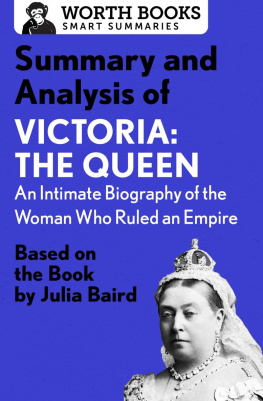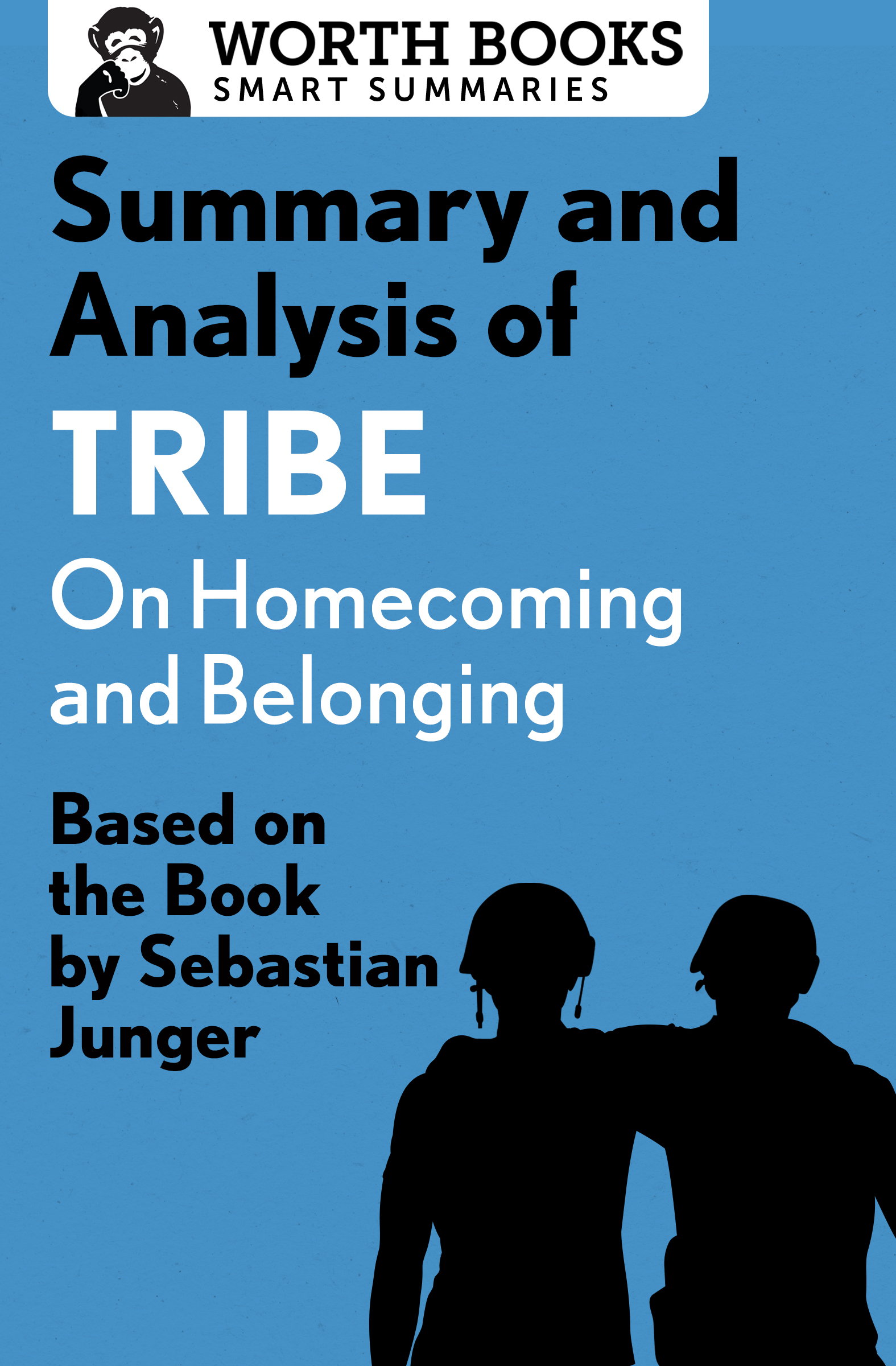Summary and Analysis of
Tribe
On Homecoming and Belonging
Based on the Book by Sebastian Junger

Contents
Context
Technology, industry, and personal liberty have bestowed untold benefits on modern society, but they have also led our communities to become more fragmentedthe lives we lead are lonelier, dehumanizing, even. Each time civilization has gained ground and become more complexfrom one of Stone Age hunter-gatherers to one based on agriculture; from the industrial revolution to the Atomic age; from pooled resources to a global economy; from small communities to skyscrapers; and from the printing press to the Internetwe have lost a vital part of our shared humanity: the need for each other.
In the United States there is increasing wealth, yet that wealthcreates distance between peoplefrom where we live to whom we see every day, even tohow we sleep. Yet the microcosm of warriors in battle and survivors amidstcatastrophe demonstrates time and again that pulling together for the common goodbrings a sense of belonging and a willingness to give, and provides meaning topeoples lives, because they believe they are making a difference.
Tribe grew out of a 2015 article for Vanity Fair , How PTSD Became a Problem Far Beyond the Battlefield. It is based on Jungers fieldwork in anthropology in a Navajo community as well as his wartime reporting from Sarajevo and Afghanistan in the 1990s and early 2000s. He was fascinated by how American Indian and Israeli soldiers had a very low incidence of post-traumatic stress disorder (PTSD) on return, while other combatants returning to the United States found reentry difficult. His thesis was that it is not the war that creates trauma, but coming back to a society utterly divorced from a soldiers experience.
Jungers book takes place against a background of global crises entirely created by the modern world. The Middle East is a powder keg, and terrorists have shaken the West, most profoundly in the tragedy of 9/11. The globe is still reeling from the impact of the 2008 mortgage crisis, which nearly brought down the economy, while global climate change has already created waves of migrants and threatens coastal cities everywhere. But while people suffer the effects of these catastrophes, they are too disconnected from the centers of power to make a difference. Even warfare is performed by drones.
Tribe is a fierce argument for pushing backagainst these trends, and do as the subtitle suggests: Come home, and belong.
Overview
Tribe poses the question: What happens to people in a society that doesnt require personal sacrifice for the communal good, and that has traded community for consumption?
Hardship brings everyone together to alleviate suffering. When we all play our part, we feel a sense of belonging. These are intrinsic human needs, and only when they are fulfilled can we find meaning and purpose in our lives. Modern society, Sebastian Junger argues, has perfected the art of making people not feel necessary.
Junger finds that much of the solution can be found in tribal societies, which require loyalty and sacrifice from their members. He also examines how tribes emerge in modern society during times of great hardship and war, during which, paradoxically, people thrive, and rates of suicide and depression drop.
In the modern societies Junger dissects, technologyand the ability to live without pooling resources or defending one anotherhas left us more isolated than at any point in human history. Traveling to Sarajevo, Afghanistan, and Israel, Junger examines the experiences of both soldiers and civilians in war zones, where the need to pull together has conferred meaning on citizens lives. He takes us back into American history, studying the white captives of American Indians in the Revolutionary era, many of whom were loath to leave their new, communal societies in order to return to modern civilization.
Woven throughout the narrative are Jungers own efforts to find his tribe, and he buttresses his arguments with numerous studies on depression, PTSD, disaster response, and resilience. As he looks with concern toward the future, he sees a remote society in which people trade the vital benefits of community for the guarantee of basic comforts. Has this improved our lives? Are we living the way humans were built to live? Junger has his doubts.
Summary
Introduction
Junger recounts an incident early in a trip hitchhiking across the American West. Having just finished college, he sets out in search of more meaning in his life than can be found in the safe, sterile suburb where he grew up. While Junger is hitching on a highway in Wyoming, a man approaches him from a nearby town. Based on his appearance, Junger thinks he is going to ask for food. Instead, the man offers up his own lunch, saying Junger needs enough to eat if he wants to make it to California. Junger is struck that the man is not only generoushe has taken responsibility for a stranger.
Need to Know: Junger is seeking an environment in which people treat each other not as strangers but as members of the same tribe.
The Men and the Dogs
Junger focuses on the things that separated modern society from its historical tribal roots, chiefly, the development of agriculture, followed by the development of industry. Both of these allowed people to acquire wealth and, as a result, make individual choices, including living apart from any communal group.
This growing level of financial independence can lead to isolation and increased risk of depression and suicide. He cites numerous studies, including a World Health Organization finding that people in wealthy countries suffer depression at up to eight times the rate of poor countries.
Junger quotes Mary Jemison, a famous Seneca captive taken in her teens in the mid-1700s. Explaining why so many captives refused to return to white society when given the chance, she says, No people can live more happy than the Indians did in times of peace.
While many whites left for American Indian society, the exodus only went in one direction. There werent examples of Indians abandoning their tribes for life in the white world. And while Junger stresses that we must not romanticize Indian life, as its treatment of both settlers and other tribes could be savage at wartime, so, he notes, was the Spanish Inquisition, which took place at the same time.
Need to Know: Junger points to three pillars of self-determination that are at the heart of tribal living:
- Competence: A mastery of their work.
- Autonomy: Authenticity in their lives.
- Community: A communal system rather than a hierarchy.
These internal values conflict directly with current Western values, such as wealth, status, and beauty.
War Makes You an Animal
Junger shares his story of reporting from Sarajevo during its three-year siege by Serbian forces, which resulted in the death of 70,000 civilians and soldiers, or roughly 20% of the citys population. He also discusses the 1915 Avezzano earthquake, which had a 96% mortality rate, with 30,000 residents killed in the first minute. He cites these stories as illustrations of how people pull together during such trials. This, he states, is because the rich and the poor are suddenly rendered equal: The lack of basic necessities means all must band together to survive.
He further notes that though the English government prepared for an epidemic of psychiatric breakdowns during the Blitz in World War Twoas many as four million citizens were projected to suffer from bomb neurosesinstead, people left psychiatric wards. Suicide rates dropped throughout Europe. The psychiatric wards were also empty in Paris during both world wars.









